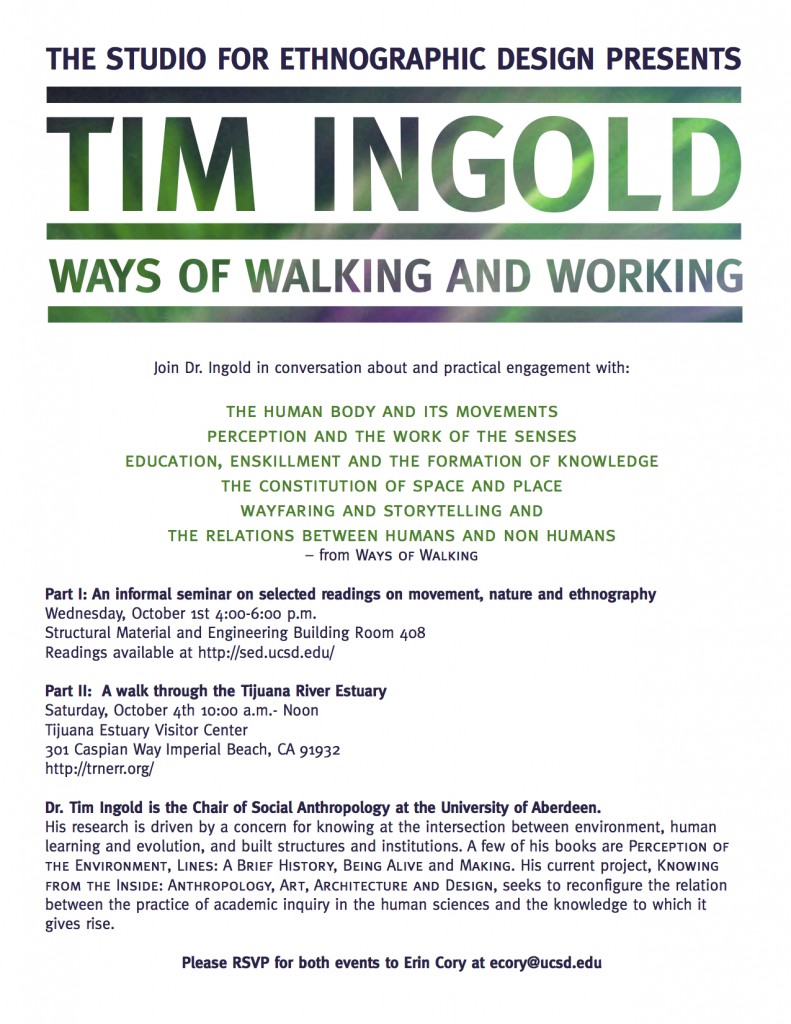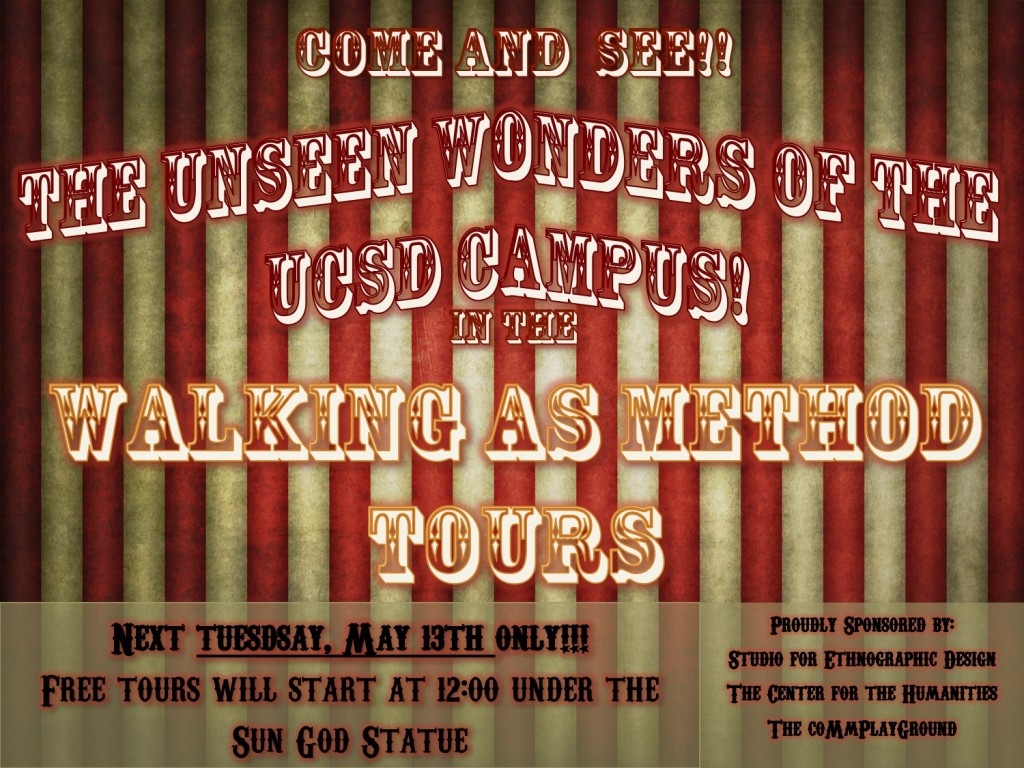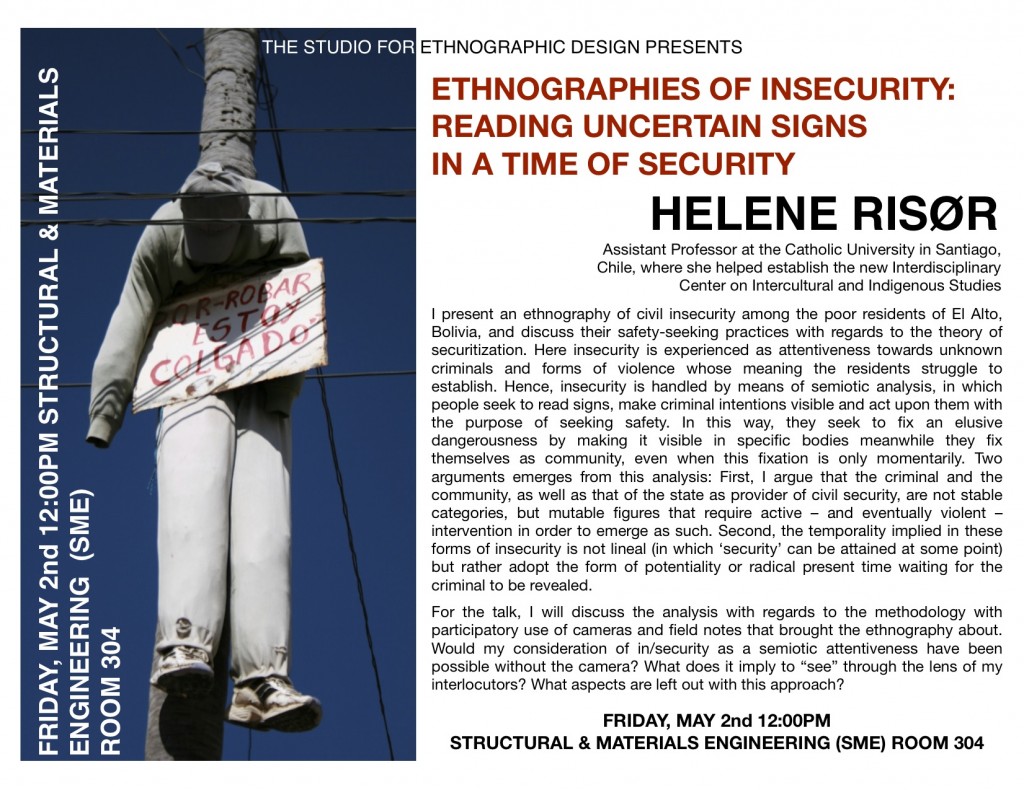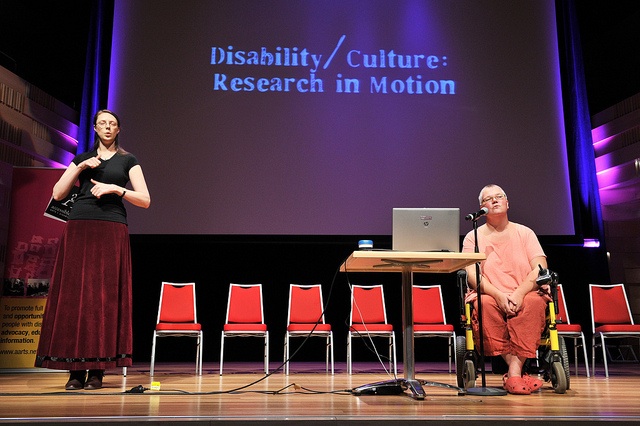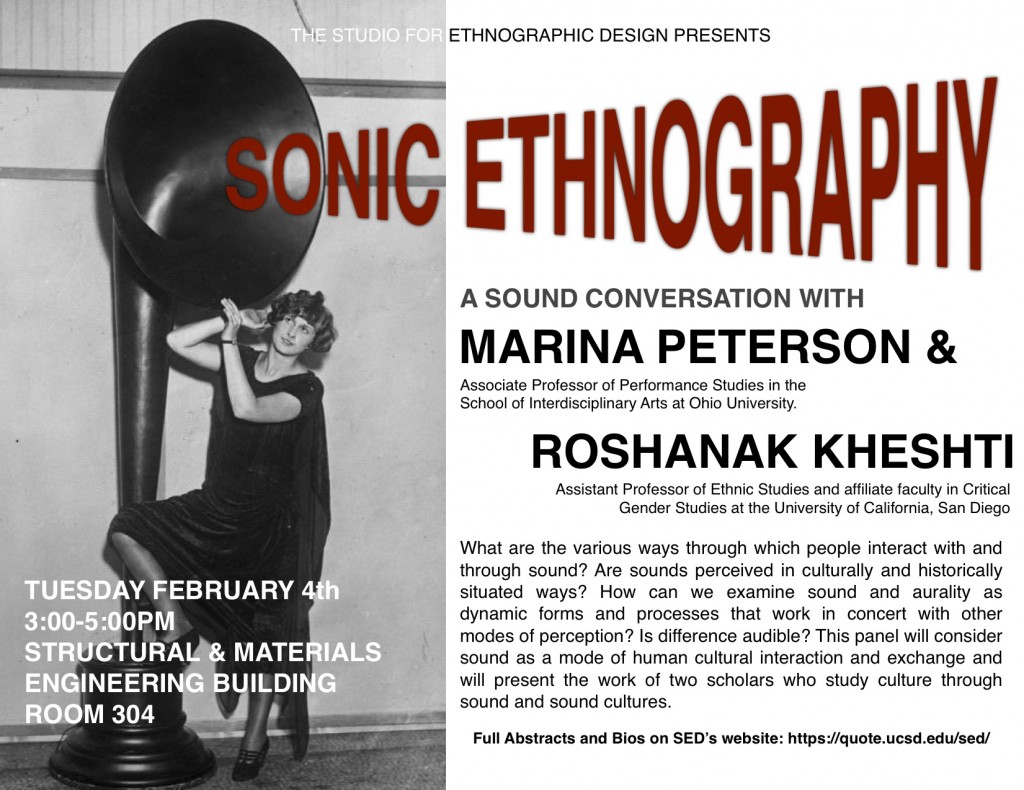
SUGGESTED READING
Schafer “The Soundscape”
Feld & Brenneis “Doing Ethnography in Sound”
Kheshti “Touching Listening”
Ingold “Four objections to the concept of soundscape”
MARINA PETERSON “Everyday Aurality”
I draw on an audio recording of the Moonshine Festival parade in New Straitsville, Ohio to explore the use and limits of field recordings for a project of sonic ethnography. In asking “what do we hear?,” I move from a consideration of “What is the sound of…” toward a project of sonic ethnography that asks not only what do we hear, but how do we listen such that we might understand the ways in which others hear. Listening is a way of paying attention and being present, both by people in the world and in conducting research. Sonic ethnography begins with listening, and listening to how people listen. It requires paying attention to social and environmental sounds, ways in which people orient via the aural, how expertise is enacted through listening, and how attachments of kinship and friendship cohere around an attunement to sounds.
Marina Peterson is Associate Professor of Performance Studies in the School of Interdisciplinary Arts at Ohio University. An anthropologist, her work focuses on practices and processes of city making. Her research has explored multi-scalar dimensions of urban space through the study of sensory, sonic and embodied processes ranging from musical performance to planning and labor. She is the author of Sound, Space and the City: Civic Performance in Downtown Los Angeles (UPenn Press 2010) and co-editor of Global Downtowns (UPenn Press 2012). Her work has appeared in Anthropological Quarterly, O-Zone: A Journal of Object-Oriented Studies, Space and Culture, Journal of Popular Music Studies and Urban Anthropology. A cellist, she primarily plays experimental improvised music.
ROSHANAK KHESHTI “Learning from Zora Neale Hurston’s sonic ethnography”
Author and anthropologist Zora Neale Hurston participated in numerous audio recording expeditions in the 1930s. Rather than record only local research subjects in Florida and Georgia, Hurston can be heard participating in the performances she set out to record, often recording only herself singing. What can we learn from what I have come to call Hurston’s phonographic refusal? Focusing on the question of fidelity–the faithfulness of recorded sound to source in ethnographic and ethnomusicological field recordings–I examine Hurston’s “sonic infidelity” or how her choices have effected what sounds are contained on record in the archive and how her interventions have disrupted the mythical production of an authentic African American folk.
Roshanak Kheshti is Assistant Professor of Ethnic Studies and affiliate faculty in Critical Gender Studies at the University of California, San Diego. Her forthcoming book Modernity’s Ear: The Race, Gender and Sexuality of Listening in the World Music Culture Industry focuses on the world music industry’s production of racialized and gendered sounds and a deracinated American world music listener. Her research broadly centers on the consumption of race, gender and sexuality through sound and film. She has published in the journals Feminist Studies, American Quarterly, Hypatia, Anthropology News, Parallax and Theater Survey. She has also published numerous musical recordings both as a former member of bay area-based experimental rock band The Ebb and Flow and independently as composer and performer for film.


